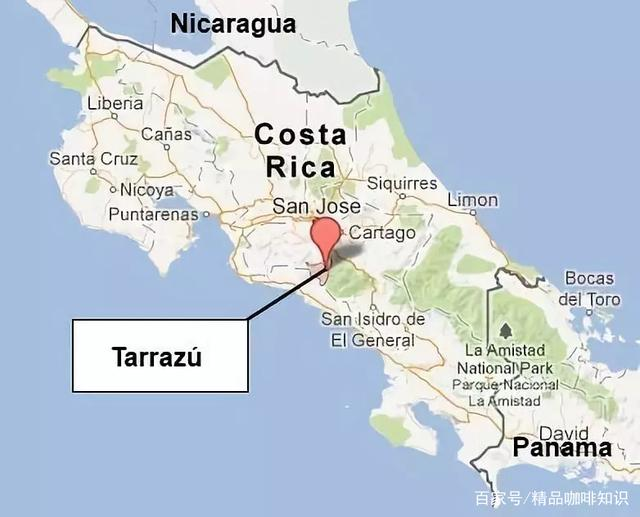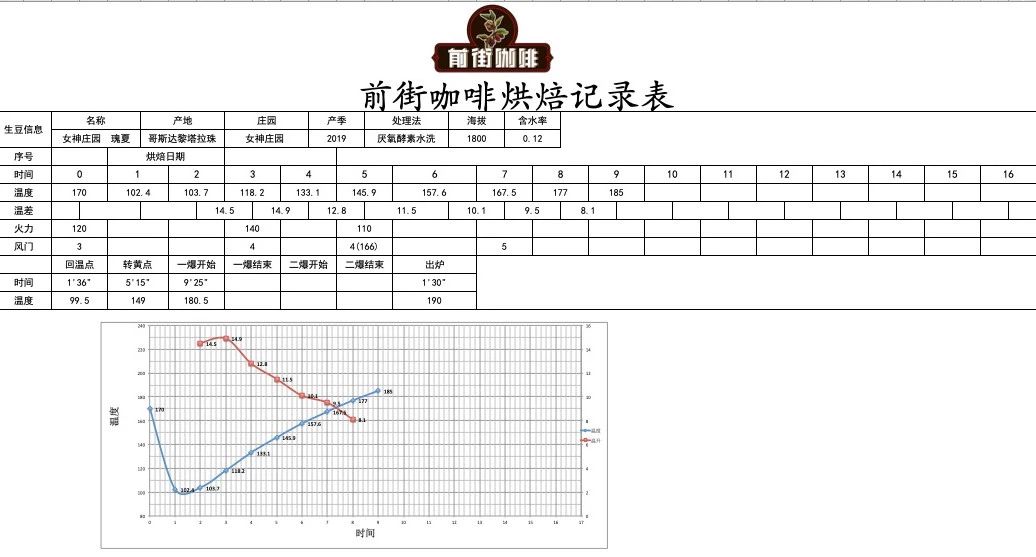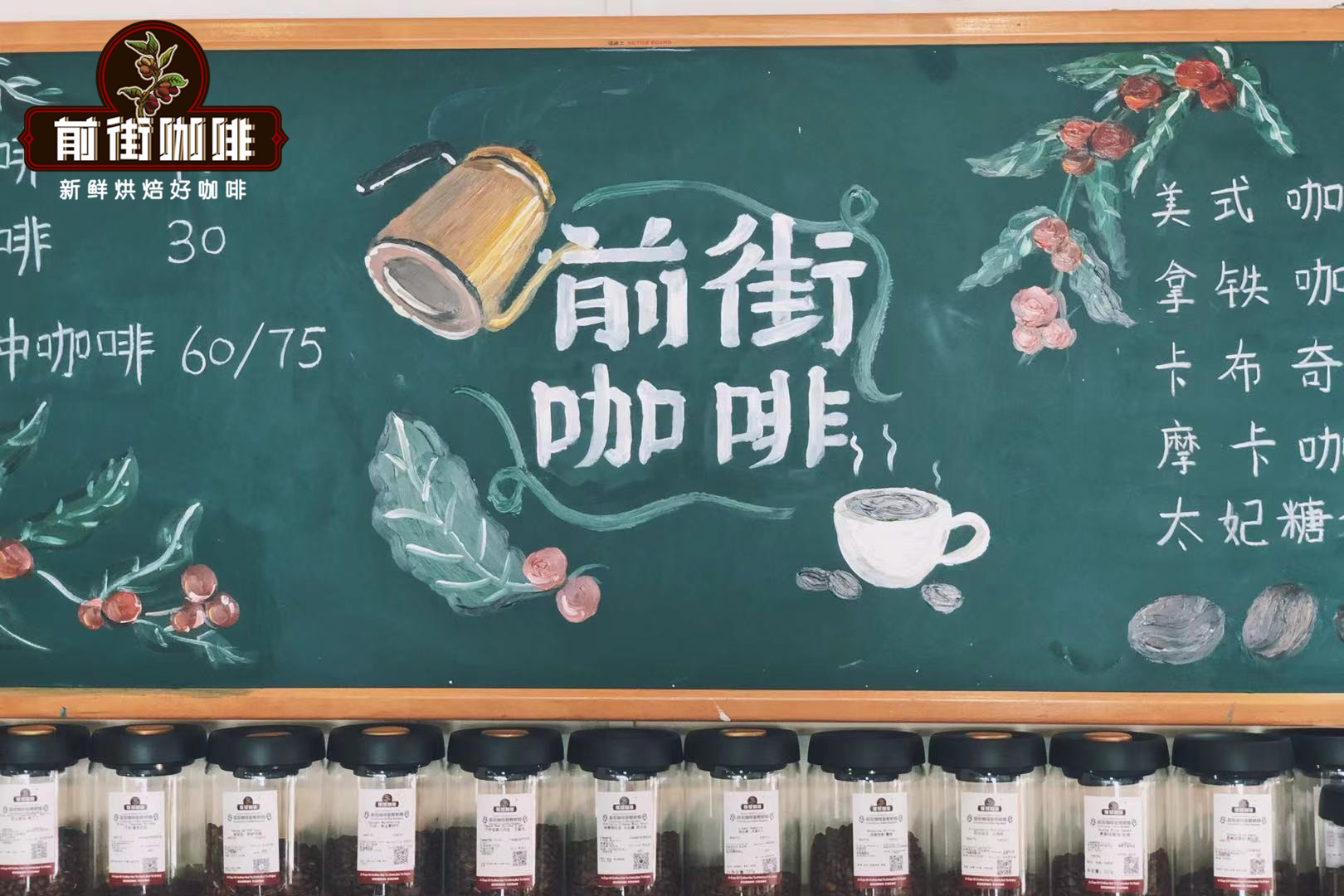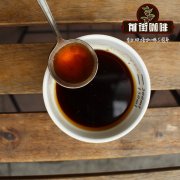Costa Rica multi-tower coffee goddess manor history story _ Costa Rican goddess rose summer how to drink

Professional coffee knowledge exchange more coffee bean information please follow the coffee workshop (Wechat official account cafe_style)
Today, Qianjie wants to share a rosy summer coffee from Costa Rica, but it is not the honey treatment that people think. Although Costa Rica's honey treatment is very famous and of high quality, there must be a new attempt. This rose summer comes from the goddess manor. The goddess manor grows goddess varieties. It's a perfect match!

| | production area description |
The fertile volcanic ash, mild and suitable temperature, and stable and abundant rainfall on the Costa Rican coffee plantation is one of the factors why coffee has become one of the main agricultural products in Costa rica. and the coffee beans produced at the high latitudes of Costa Rica are famous in the world, rich, mild in taste, but extremely sour, and the coffee beans here are carefully processed, which is why. To have high-quality coffee.
The Starika coffee harvest season can be divided into two seasons, the dry season is from December to April, the coffee harvest is from December to April, and the wet (rainy) season is from May to November. In recent years, micro-treatment plants have been established, and since the water consumption is only 5% of that of traditional washing plants, and does not require huge sinks and exposure fields, the investment required is relatively small. The "honey-treated coffee" with low acidity, high complexity and strong sweet flavor has become the target of competition in the coffee industry in recent years.
Located in the south of SanJos é, the capital of Tarasu, Costa Rica is one of the most important coffee growers in the country. Among the many excellent producing areas in Costa Rica, there is a famous producing area-Tarrazu, which is very famous in the boutique coffee world and is one of the major coffee producing areas in the world.
Tarasu is located in the fertile volcanic region of Central America, where there is a humid climate and fertile volcanic soil, abundant rainfall throughout the year, high altitude, dense forest natural shade, providing a unique growth environment for coffee growth. Without the use of pesticides or artificial fertilizers, nearly 95% of the coffee beans produced by Tarazu Mountain belong to extremely hard beans (SHB), which generally grow at an altitude of more than 1500 meters.

| | Goddess Manor |
The Goddess Manor is located in the Dota region of Costa Rica's best-known tarrazu region and is famous for producing micro-batch rose varieties. In 1865, the Dota region enjoyed the reputation of good Costa Rican coffee, because the highway construction extending to the capital had to pass through Tarazu District when it was developed to the Dota Valley, so the future Goyuan Coffee Bureau sub-area marking is used to mark Dota tarrazu, this area is a typical plateau topography, whether soil or temperature and humidity is the best choice in terms of coffee growing conditions.
The Goddess Manor was founded in the 1960s, and the owner is now very good friends with Pachi Serracin, the father of Panama Rose Summer, and Pachi Serracin brought back Rose Summer varieties at CATIE, the industrial scientific research station of the world's largest coffee variety and variety in Costa Rica. The Goddess Manor grows coffee organically, using local native trees and fruit trees as shade.
The fertilizer used is also coffee, cherry and fruit mixed with molasses, adding fertile soil with high mineral content in the adjacent mountain area with microbial fermentation to produce organic fertilizer that can enhance coffee value and disease resistance, and is also used to use California earthworms as culture soil. and directly used as the main nutrient source of coffee trees and mixed planting a variety of coffee varieties. All buy and pick ripe red-purple berries and extensively control the soaking and fermentation process, and develop a very unique constant temperature treatment, not many and many fermentation degrees make the coffee an excellent balance between clarity and complexity, so that its flavor shows more stability, people are intoxicated.

| | Rosa Variety
Geisha is pronounced like a geisha in Japanese, so it is also called geisha coffee. Because the tree species are taller than ordinary coffee trees, they were originally planted in a small area of the manor and used as a windbreak.
The species of Geisha was discovered in the rose forest of Ethiopia in 1931 and sent to the Coffee Institute in Kenya. Introduced to Uganda and Tanzania in 1936 and Costa Rica in 1953, little attention was paid to Rose Summer until one day, Don Pachi was originally brought to Costa Rica from the town of GESHA in southwestern Ethiopia, and then Rosa entered Panama along the southern route, where Esmerada Manor in Panama separated it from other varieties and won the National Coffee Competition.
| | treatment of anaerobic enzyme washing |
Anaerobic enzyme washing method means that after harvesting all red fresh fruit, peel and pectin are removed by mechanical washing equipment, and enzymes are put into the fermentation tank to increase the flavor and sweetness of coffee.

| | Analysis of raw beans |
Raw beans look long and light green, different from the previous smell of raw beans and grass, the goddess Rose Summer smells not only with grass, but also with more bergamot and berry fragrance.

| | Baking analysis |
Considering that the beans in Costa Rica are hard and the moisture content is medium, Qianjie bakers choose to rise at high temperature during baking, in the way of rapid dehydration, with a faster baking rhythm to show the fruit flavor and flower fragrance of this goddess rose summer.
Roaster Yangjia 800N (baking capacity 300g)
The furnace temperature is 170℃, the firepower is 120mm, the throttle is open 3; the temperature recovery point is 1140℃, the throttle is opened to 4, the firepower is unchanged; when the furnace temperature is 149℃, the bean meter turns yellow, the grass smell disappears completely, and enters the dehydration stage, when the furnace temperature reaches 166℃, the firepower is adjusted to 110C, the throttle remains the same.
The smell of toasted bread has obviously changed to the smell of coffee, which can be defined as a prelude to an explosion. At this time, it is necessary to listen carefully to the sound of the explosion point until the sound of the explosion point starts to explode. Adjust the throttle to 5 (the tuning power should be very careful, not so small as to be so small that there is no burst sound). After an explosion, the development of 1 cup 39th 30 ", 190 ℃ into the pot.

Agtron bean color value 72.9 (top picture), Agtron pink value 88.2 (bottom picture), Roast Delta value 15.3.
| | Cup report |
Flavor: rose, lemon, honey, maple syrup, fruit tea
| | Cooking |
Costa Rica Dota El DiosaGeisha
Costa Rica multi-tower goddess manor summer
Origin: CostaRiCa, Costa Rica
Producing area: Tarazhu Tarrazu
Manor: multi-Tower Goddess Manor Dota EI Diosa
Variety: rose summer Geisha
Altitude: 1800m
Treatment: anaerobic enzyme washing

Recommended cooking method: hand flushing
Filter cup: Hario V60
Water temperature: 90-92 ℃
Amount of powder: 15g
Powder-to-water ratio: 1: 1: 15: 1: 1: 16
Degree of grinding: medium and fine grinding (BG 7T: 58% pass rate of Chinese standard No. 20 screen)
Cooking technique: stage-by-stage extraction
Steam with 30 grams of water for 30 seconds, small water flow round the circle to 124 grams, continue to inject water to 227 grams when the water level is about to be exposed to the powder bed, remove the filter cup when the water level is about to expose the powder bed, (the time of steaming starts) the extraction time is 2 minutes 39 percent 01 ".
Flavor: the overall flavor of the flower is more prominent, very lemon fruit tea, the entrance has citrus, cream, taste more refreshing, sweet.
END
Important Notice :
前街咖啡 FrontStreet Coffee has moved to new addredd:
FrontStreet Coffee Address: 315,Donghua East Road,GuangZhou
Tel:020 38364473
- Prev

Bolivian Coffee Plantation Coffee Beans Bolivian Valiki Java Coffee Beans Flavor Features Story
Professional coffee knowledge exchange More coffee bean information Please pay attention to coffee workshop (Weixin Official Accounts cafe_style) If you want to say that coffee beans grow in heaven, it is Bolivia. This producing area can be regarded as one of the most recommended fine coffee producing areas in Xiaobian. The coffee beans in this producing area are mostly sweet and very pleasant, but the amount of coffee beans is very small.
- Next

Introduction of Braulio Luqu, a winning farm in Bolivia's COE competition.
Professional coffee knowledge exchange more coffee bean information please follow the coffee workshop (Wechat official account cafe_style) Braulio Luque won the third place in the 2007 coffee competition, the second place in the 2008 competition, and the second place this year. He assured us that the secret of his success lies in the way he works. We work together at home. We each other.
Related
- Detailed explanation of Jadeite planting Land in Panamanian Jadeite Manor introduction to the grading system of Jadeite competitive bidding, Red bid, Green bid and Rose Summer
- Story of Coffee planting in Brenka region of Costa Rica Stonehenge Manor anaerobic heavy honey treatment of flavor mouth
- What's on the barrel of Blue Mountain Coffee beans?
- Can American coffee also pull flowers? How to use hot American style to pull out a good-looking pattern?
- Can you make a cold extract with coffee beans? What is the right proportion for cold-extracted coffee formula?
- Indonesian PWN Gold Mandrine Coffee Origin Features Flavor How to Chong? Mandolin coffee is American.
- A brief introduction to the flavor characteristics of Brazilian yellow bourbon coffee beans
- What is the effect of different water quality on the flavor of cold-extracted coffee? What kind of water is best for brewing coffee?
- Why do you think of Rose Summer whenever you mention Panamanian coffee?
- Introduction to the characteristics of authentic blue mountain coffee bean producing areas? What is the CIB Coffee Authority in Jamaica?

